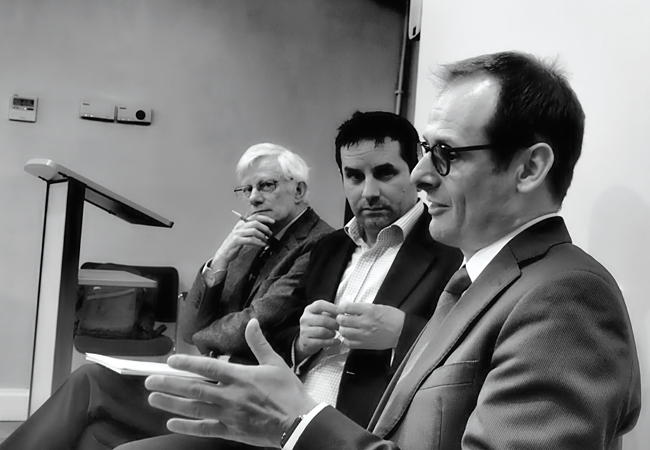
Speakers Kevin Barrett, Mike Darby and David Stevens
CIBSE’s Home Counties North West (HCNW) Region hosted an event in February,exploring the president’s theme: why building performance often fails to satisfy users.
The discussion focused on: collaboration: integration of user requirements into design; the role of FM; how new technology can add value to post-occupancy evaluation (POE); and how this could feed back to designers.
Panel chair Chris Jones discussed the uncertainty that Brexit has brought about for legislation and building compliance. Speakers Kevin Barrett, David Stevens, Mike Darby and Chris Jones focused on planning, briefing and conception.
Accelerating cost-fixity, differing agendas, failures to identify user requirements, rapid value engineering, contractual divisions, changes and compressed programmes were all identified as contributors to poor integration, with rushed commissioning resulting in the need for specialists to investigate complaints long after occupation.
The panel showed how over-complexity, incomplete design and coordination might also contribute to poor building performance. Taking a user and operational FM perspective, Barrett and Stevens illustrated unnecessarily complex solutions that cost more but failed to grasp very simple user needs.
Jones suggested that Building Regulations approval could become ‘provisional’ on completion, with final regulatory approval being granted only after a POE, DEC and EPC analysis.
Darby explained how POE analysis was gradually building a database of performance profiles. Significant operating cost reductions were materialising long after commissioning. But Demand Logic’s database was also revealing how effective and responsive different kinds of HVAC design solutions were in practice, and in real time.
A report of the debate by Stuart Huggins, who attended the talk, is available here.
For more information about HCNW, visit the region’s website.
